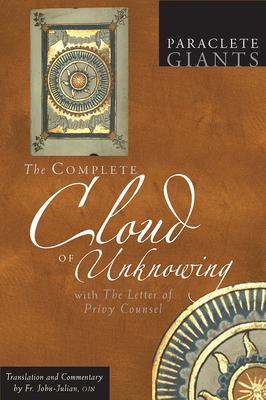The Christian mystical tradition has its roots in Holy Scripture but was enunciated most clearly by the late 5th century author writing under the name Dionysius the Areopagite. It was acquaintance with the medieval version of that work which inspired the anonymous author of The Cloud of Unknowing and led him to develop his insights and perceptions of the obscurity and "unknowability" of God. His understanding was that God was on an entirely different plane of existence from human beings--indeed, so different that time-bound human language was inadequate to describe God exhaustively or accurately. Intellect and emotion both fail in seeking God, who can only be encountered by rejecting of all common earthly means in a "cloud of forgetting" and the discovery of Godself in the dark "cloud of unknowing" which can be pierced only with a "lance of longing love."

Complete Cloud of Unknowing: With the Letter of Privy Counsel
The Christian mystical tradition has its roots in Holy Scripture but was enunciated most clearly by the late 5th century author writing under the name Dionysius the Areopagite. It was acquaintance with the medieval version of that work which inspired the anonymous author of The Cloud of Unknowing and led him to develop his insights and perceptions of the obscurity and "unknowability" of God. His understanding was that God was on an entirely different plane of existence from human beings--indeed, so different that time-bound human language was inadequate to describe God exhaustively or accurately. Intellect and emotion both fail in seeking God, who can only be encountered by rejecting of all common earthly means in a "cloud of forgetting" and the discovery of Godself in the dark "cloud of unknowing" which can be pierced only with a "lance of longing love."